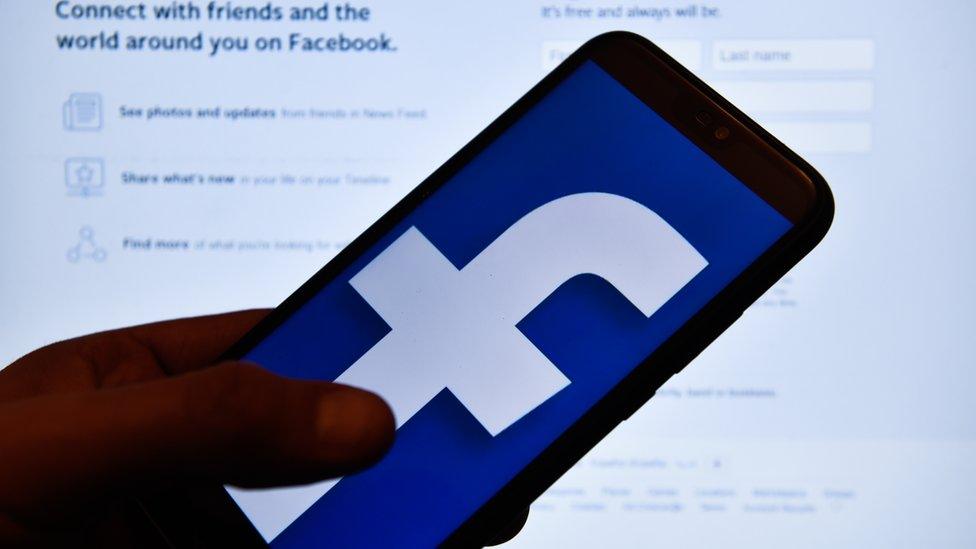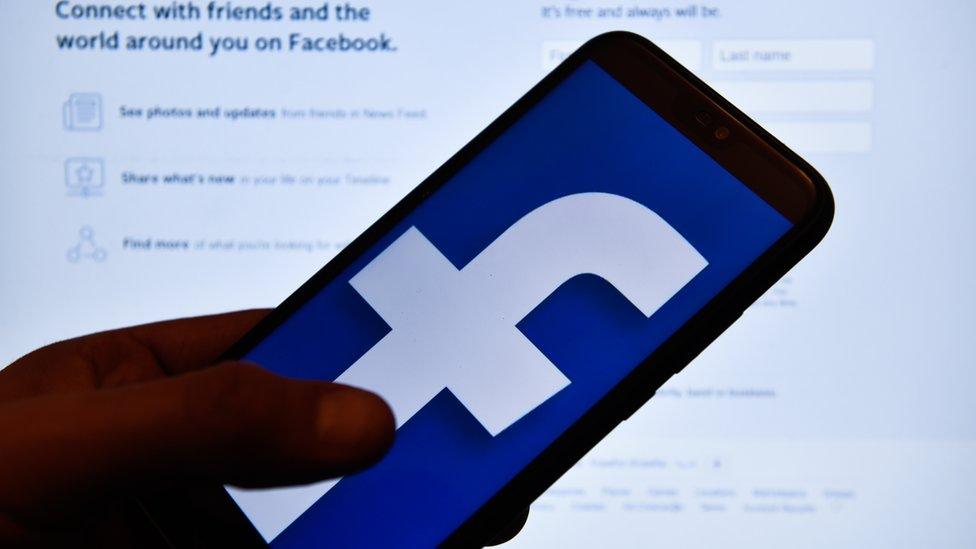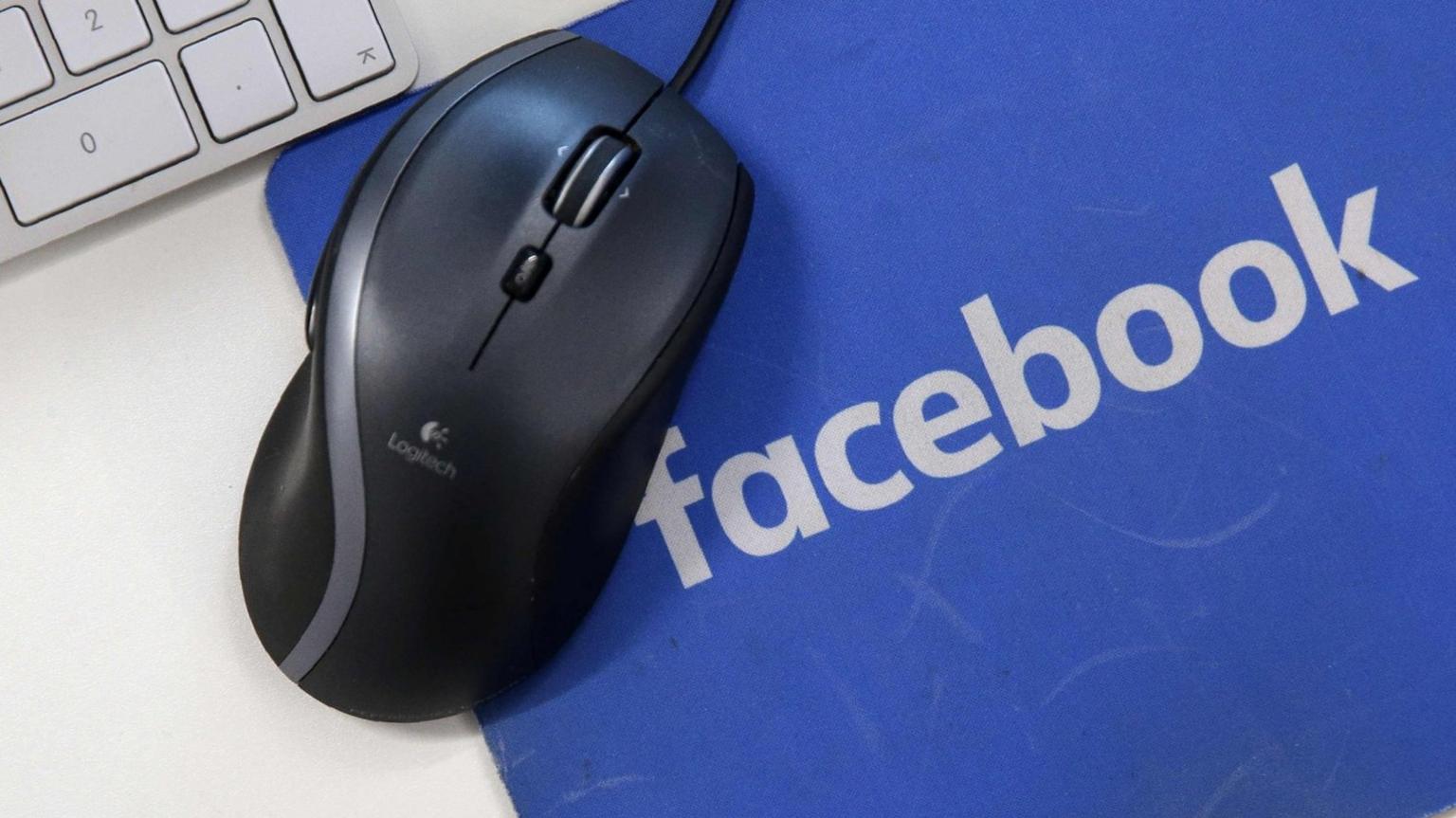Facebook bans 'Saudi Arabia-linked propaganda accounts'
- Published

Facebook says it has discovered that people linked to the Saudi authorities have been using its platforms to spread propaganda through fake accounts.
It says the operation mainly targeted the Middle East and North Africa, and most of the content was in Arabic.
More than 350 accounts and pages have been removed. It is rare for the social media giant to publicly link such activities to a government.
Saudi Arabia has so far made no public comments on the issue.
In a statement, Facebook said it acted this week to tackle "co-ordinated inauthentic behaviour, external" on its platform and on Instagram, which the company owns.
It says the accounts were set up so people could pose as citizens of those countries, or create pages that looked like local news outlets.
The company has faced rising criticism for failing to stamp out misinformation on its platforms.
It said it had also suspended a separate - unconnected - operation, which originated in the United Arab Emirates and Egypt. But in these cases, it did not allege links to officials.
What else does Facebook say?
Facebook's head of cybersecurity policy, Nathaniel Gleicher, explained how the Saudi accounts allegedly operated. "The Page admins and account owners typically posted in Arabic about regional news and political issues, including topics like the Crown Prince Mohammad bin Salman, his economic and social reform plan 'Vision 2030', and successes of the Saudi armed forces, particularly during the conflict in Yemen," he said.
He added: "They also frequently shared criticism of neighbouring countries including Iran, Qatar and Turkey, and called into question the credibility of Al-Jazeera news network and Amnesty International.
"Although the people behind this activity attempted to conceal their identities, our review found links to individuals associated with the government of Saudi Arabia."
About 1.4 million people followed the removed accounts and pages.
Facebook says the campaign spent $108,000 (£89,000) on advertising.
- Published2 July 2019
- Published2 April 2019
- Published17 May 2019

- Published7 March 2019
